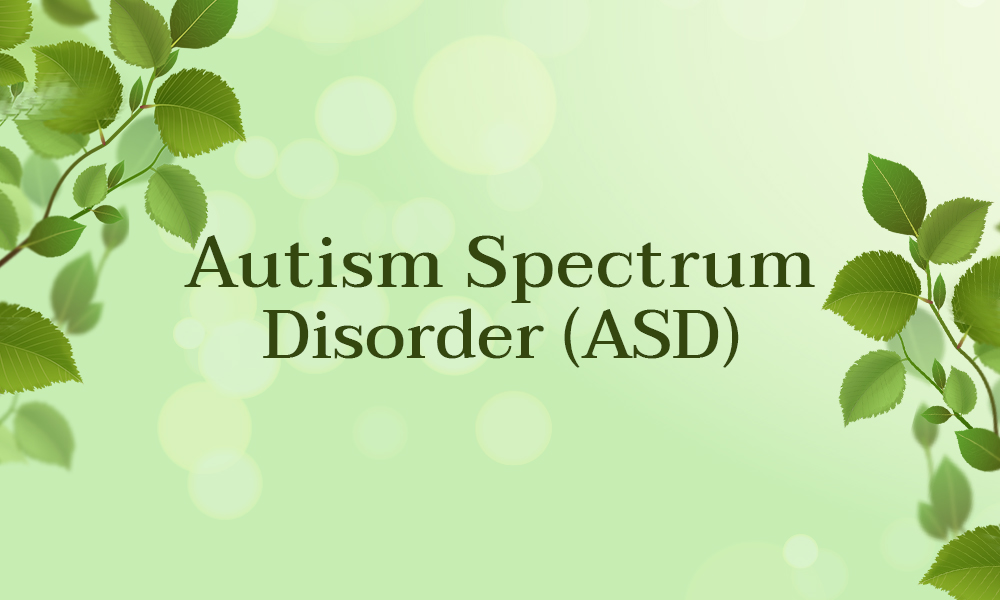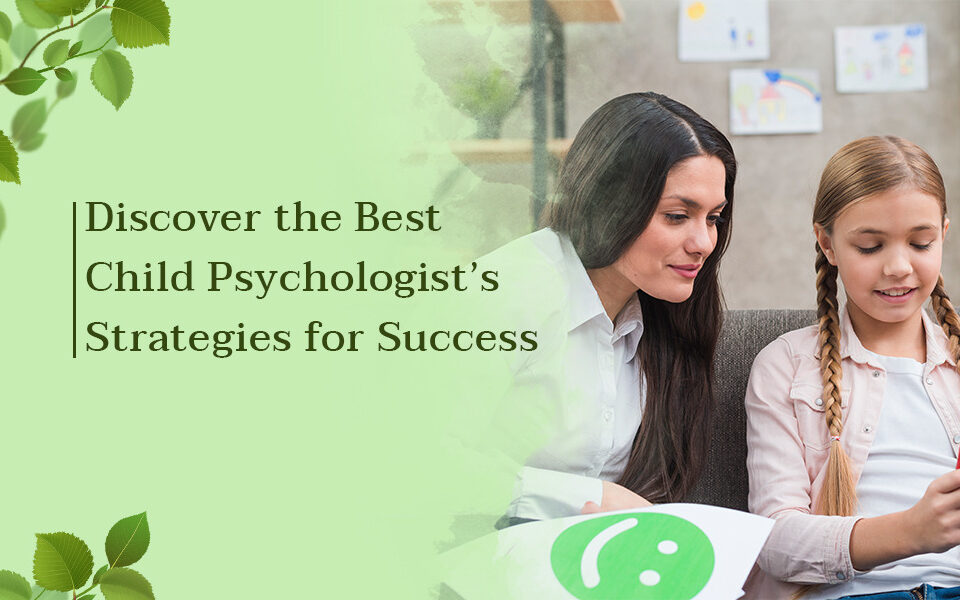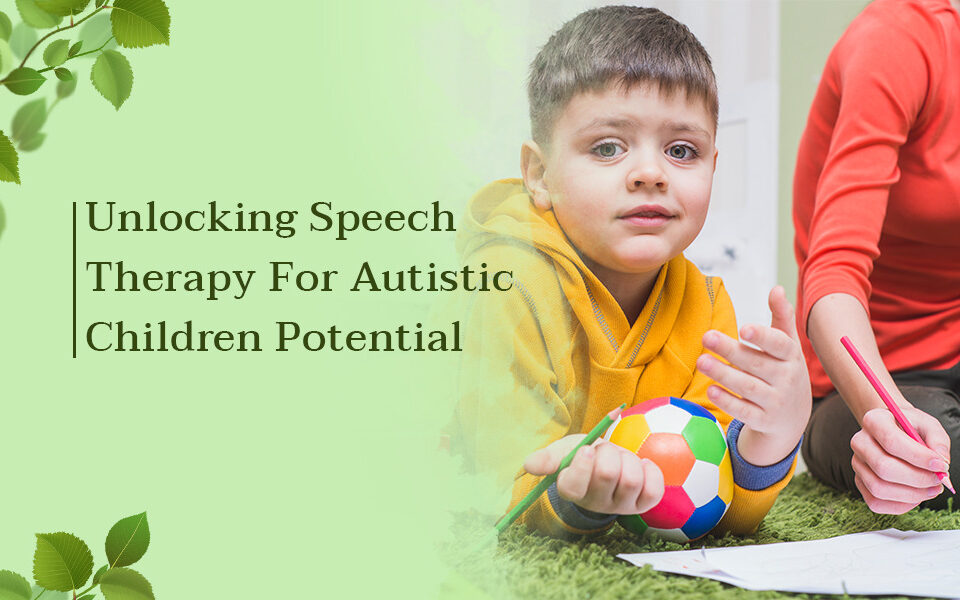- Jofa Tower 5th floor, SB-23, Block 13 C, Main University Rd, Gulshan-e-Iqbal, Karachi.
- +92 322 3746726
- tis@transformation.com.pk
Autism Spectrum Disorder (ASD)

Autism Causes and Treatment
May 24, 2023
Autism Spectrum Disorder
June 21, 2023Autism Spectrum Disorder (ASD)
Autism Spectrum Disorder (ASD) is a neurodevelopmental condition that affects a person's ability to communicate, interact socially, and engage in repetitive behaviors. The disorder can be diagnosed in early childhood, typically around the age of 2-3 years old, and it is a lifelong condition. ASD is referred to as a spectrum disorder because it encompasses a wide range of symptoms and severity levels. While individuals with ASD share common characteristics, the specific manifestations and challenges they face can vary significantly from person to person. Some individuals with ASD may have significant intellectual and language impairments, while others may have average or above-average intelligence.
It is estimated that the prevalence of ASD in Pakistan is similar to the global prevalence, which is approximately 1 in 160 children. In 2017, the estimated prevalence of ASD in Karachi, the largest city in Pakistan, was 1.3%. In 2019, the estimated prevalence of ASD was 1.45% in school-age children in Lahore. Additionally, many cases of ASD in Pakistan may go undiagnosed or misdiagnosed due to a lack of awareness and resources for autism diagnosis and treatment. Overall, the prevalence of autism in Pakistan is likely similar to global estimates, but more research is needed to accurately determine the prevalence and characteristics of ASD in the country. Awareness and education about autism, as well as increased resources for diagnosis and treatment, are necessary to improve the lives of individuals with ASD and their families in Pakistan.
Let’s explore the different aspects of Autism Spectrum Disorder, including its causes, symptoms, diagnosis, treatment, and support resources.
Causes of Autism Spectrum Disorder
-
Genetic Factors:
There is strong evidence that genetics play a role in the development of autism. Studies have shown that individuals with a family history of autism are more likely to develop the condition than those without. Researchers have identified several genes associated with autism and are currently studying how changes in these genes contribute to the development of the disorder. However, it is important to note that no single gene has been found to cause autism, and the contribution of genetics to autism is complex and not yet fully understood.
-
Environmental Factors:
Environmental factors may also play a role in the development of autism. Research has suggested that exposure to certain environmental toxins, such as air pollution, pesticides, and heavy metals, during pregnancy or early childhood may increase the risk of developing autism. Maternal infections during pregnancy have also been linked to an increased risk of autism.
-
Brain Development:
The development of the brain during early childhood is crucial to the development of social, communication, and behavioral skills. Research has shown that differences in brain development and function may contribute to the development of autism. For example, studies have shown that individuals with autism have differences in the structure and function of certain areas of the brain, such as the amygdala and the prefrontal cortex.
-
Other Factors:
Other factors that may contribute to the development of autism include preterm birth, low birth weight, and exposure to certain medications during pregnancy. However, it is important to note that not all individuals with these risk factors will develop autism, and not all individuals with autism will have these risk factors.
The exact causes of Autism Spectrum Disorder are not yet fully understood. However, research suggests that a combination of genetic and environmental factors may play a role, more research is needed to fully understand how these factors interact and affect the development of the disorder.
Symptoms of Autism Spectrum Disorder
The symptoms of autism can vary widely between individuals and can range from mild to severe. In general, autism is often diagnosed in early childhood, and the symptoms can be grouped into three categories: social communication, social interaction, and repetitive behaviors and interests.
Social communication symptoms:
One of the key symptoms of autism is difficulty with social communication. This can include:
- Delayed or absent speech: Children with autism may not start speaking until later than usual, or they may not speak at all.
- Difficulty initiating and maintaining conversations: Individuals with autism may struggle to start a conversation, keep it going, or understand when it is their turn to talk.
- Difficulty understanding nonverbal cues: People with autism may have trouble interpreting facial expressions, body language, and tone of voice, which can make it difficult to understand social interactions.
- Difficulty with figurative language: Individuals with autism may take language literally and have difficulty understanding metaphors or idioms.
Social interaction symptoms:
Another key symptom of autism is difficulty with social interaction. This can include:
- Difficulty making friends: Children with autism may struggle to initiate and maintain friendships with their peers.
- Lack of interest in socializing: Individuals with autism may prefer to be alone or engage in solitary activities, rather than spending time with others.
- Difficulty understanding social norms: People with autism may have trouble understanding the unwritten rules that govern social interactions, such as taking turns in conversation or respecting personal space.
- Difficulty with empathy: Individuals with autism may struggle to understand and respond appropriately to the emotions of others.

Repetitive behaviors and interests symptoms:
People with autism often engage in repetitive behaviors and have an intense interest in specific topics. This can include:
- Repetitive movements: Individuals with autism may engage in repetitive movements, such as hand-flapping or rocking.
- Ritualized behavior: People with autism may have strict routines or rituals that they follow, and become upset if these routines are disrupted.
- Intense interests: Individuals with autism may have a strong interest in a specific topic, such as trains, dinosaurs, or numbers, and may spend a lot of time learning about and talking about this topic.
- Sensory sensitivities: People with autism may be hypersensitive or hyposensitive to certain sensory experiences, such as loud noises, bright lights, or certain textures.
It is important to consider that not all individuals with autism will exhibit all of these symptoms, and the severity of symptoms can vary widely. Additionally, some individuals with autism may have other co-occurring conditions, such as anxiety or ADHD, which can complicate the diagnosis and treatment of autism. If you suspect that you or a loved one may have autism, it is necessary to seek an evaluation from a qualified healthcare professional.
Diagnosis of Autism Spectrum Disorder
Diagnosing Autism Spectrum Disorder typically involves a comprehensive evaluation by a team of medical professionals, which may include a pediatrician, psychologist, and other specialists. The evaluation may include a variety of assessments, such as speech and language assessments, behavioral evaluations, and developmental assessments. There is no single test that can diagnose ASD. Instead, the diagnosis requires a combination of different assessments and evaluations, including:
- Developmental Screening: This involves a brief assessment of a child's development to identify any areas of concern. The screening is usually done during regular check-ups with a pediatrician and child psychologist.
- Comprehensive Diagnostic Evaluation: This involves a more in-depth assessment by a whole team of specialists, including a psychologist, a speech therapist, and a pediatrician. The assessment includes direct observation of the child, interviews with parents or caregivers, and standardized tests to evaluate the child's communication, social interaction, and behavior.
- Medical Evaluation: This involves a medical examination to rule out any underlying medical conditions that may be causing the symptoms. This may include genetic testing, hearing tests, and neurological exams.

The American Psychiatric Association's Diagnostic and Statistical Manual of Mental Disorders (DSM-5) provides criteria for the diagnosis of ASD. According to DSM-5, a diagnosis of ASD requires:
- Persistent deficits in social communication and social interaction across multiple contexts.
- Restricted, repetitive patterns of behavior, interests, or activities.
- Symptoms must be present in early childhood (typically before the age of 3 years).
- Symptoms must cause significant impairment in social, occupational, or other areas of functioning.
The severity of ASD is classified into three levels based on the level of support required:
- Level 1: Requiring support - Individuals with level 1 ASD have difficulty with social communication but do not have significant language delays. They may have difficulty with social interactions and may display repetitive behaviors.
- Level 2: Requiring substantial support - Individuals with level 2 ASD have more severe social communication difficulties and may have a limited ability to initiate social interactions. They may also have repetitive behaviors.
- Level 3: Requiring very substantial support - Individuals with level 3 ASD have severe social communication difficulties and require significant support for daily living. They may have little to no verbal communication and may display severe repetitive behaviors.
Treatment for Autism Spectrum Disorder
Early intervention and treatment can make a significant difference in the quality of life for individuals with ASD. Treatment for ASD typically involves a combination of therapies and interventions that are tailored to the individual's needs.
- Applied Behavior Analysis (ABA): Applied Behavior Analysis (ABA) is the most commonly used behavioral therapy for children with ASD. ABA therapy involves breaking down complex behaviors into smaller, more manageable steps and teaching those skills through positive reinforcement. The goal of ABA therapy is to help individuals with ASD develop social and communication skills, as well as reduce problematic behaviors.
- Speech and language therapy: Many individuals with ASD have difficulty with communication and language. Speech and language therapy can help individuals with ASD develop language skills, improve communication, and better understand social cues. Speech and language therapy may involve teaching individuals with ASD how to use alternative forms of communication, such as sign language or augmentative and alternative communication (AAC) devices.
- Occupational therapy: Occupational therapy can help individuals with ASD develop fine motor skills, improve sensory processing, and learn adaptive skills that are necessary for daily life. Occupational therapists work with individuals with ASD to improve their ability to perform everyday tasks, such as dressing, eating, and grooming.
- Social skills training: Social skills training can help individuals with ASD learn how to interact with others in a socially appropriate manner. Social skills training may involve teaching individuals with ASD how to initiate and maintain conversations, understand body language and facial expressions, and develop appropriate social boundaries.
- Medication: There is no medication that can cure ASD, but medication can be used to treat co-occurring conditions that may be present in individuals with ASD, such as anxiety, depression, and attention deficit hyperactivity disorder (ADHD). Medication should be used in conjunction with other therapies and interventions.
- Parent training and support: Parents of children with ASD often need support and guidance in navigating the challenges that come with raising a child with ASD. Parent training and support can help parents develop strategies for managing problematic behaviors, communicating effectively with their children, and advocating for their child's needs. It is recommended to work with a team of professionals who are experienced in treating ASD and can provide a comprehensive treatment plan that addresses all areas of need.

Services at Transformation Wellness Clinics
Transformation Wellness Clinics takes a comprehensive and holistic approach to treating individuals with Autism Spectrum Disorder (ASD). Recognizing that ASD affects individuals differently, the clinic focuses on addressing the unique needs and challenges of each person while promoting their overall well-being. Transformation Wellness Clinic’s approach incorporates various therapeutic modalities, support services, and lifestyle interventions to foster positive growth and development in individuals with ASD.
-
Behavioral therapy:
Behavioral therapy is a cornerstone of ASD treatment. Transformation Wellness Clinics begins by conducting a thorough assessment of each individual's strengths, challenges, and specific needs. Based on this assessment, a personalized treatment plan is developed, taking into account the individual's sensory profile, communication abilities, cognitive functioning, and social skills. The clinic incorporates ABA principles into its treatment plans, focusing on behavior modification, skill acquisition, and increasing independence.
-
Speech Therapy:
Transformation Wellness Clinics offers speech and language therapy to help individuals develop and improve their communication skills. Therapists use various techniques, such as augmentative and alternative communication (AAC), social communication strategies, and speech articulation exercises to enhance verbal and nonverbal communication abilities.
-
Occupational Therapy:
Occupational therapists focus on developing and promoting independent living skills. The therapy may include sensory integration techniques, activities of daily living training, and adaptive equipment recommendations.
-
Physiotherapy:
Physiotherapy plays a crucial role in supporting individuals with ASD by addressing motor skills, coordination, sensory integration, and physical well-being. By providing targeted interventions and personalized treatment plans, physiotherapists can help individuals with ASD enhance their physical abilities, functional independence, and overall quality of life.
-
Parental Counseling:
Parental counseling can be highly beneficial for parents with an autistic child. It provides a safe and supportive space for parents to express and explore their emotions. Therapists can help parents navigate their feelings, validate their experiences, and provide coping strategies to manage stress effectively. It offers parents an opportunity to gain a deeper understanding of ASD and its impact on their child. Therapists can provide psychoeducation about ASD, including its characteristics, challenges, and strengths. By enhancing their knowledge, parents can develop realistic expectations, learn effective strategies for managing specific behaviors, and acquire skills to support their child's development and communication.
-
rTMS (Repetitive Transcranial Magnetic Stimulation):
Repetitive Transcranial Magnetic Stimulation (rTMS) is a non-invasive brain stimulation technique that has shown promise in the treatment of various neurological and psychiatric disorders. There have been some studies exploring its potential role in the treatment of certain symptoms associated with ASD. As with any treatment approach, decisions regarding the use of rTMS should be made on an individualized basis, taking into account the specific needs, characteristics, and preferences of the person with ASD, and in consultation with a qualified healthcare professional experienced in rTMS.




